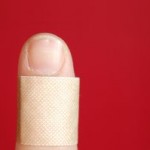CPR is definitely one of those things: You absolutely know how important it is. You may personally know someone that has been helped by CPR. You may even have a pretty good idea how CPR is performed, thanks to television shows like ER or Grey’s Anatomy. However, if you’re like most people, you’ve never actually received formal CPR training.
You might believe it’s not really necessary or think it’s pretty unlikely that you’d find yourself in a situation where you really need to know it. In reality, formal CPR training is something everyone would greatly benefit from getting and from encouraging other people to get, too. Let’s take a closer look at just a few of the major reasons why.
1. You Might Save Someone You Love
When we picture someone suddenly collapsing and needing CPR, we tend to picture it happening to a stranger out in public somewhere. However, while this certainly does happen, it’s important to realize that, statistically speaking, most cardiac arrests occur in the home – around 85%, to be more specific.
This means that if you do ever find yourself in a situation that finds someone in need of CPR, it’s much more likely to be a loved one or a friend than a total stranger. That said, you shouldn’t just think of CPR training as something that might allow you to save the life of a stranger someday. Think of it as something that will allow you to be a better, more protective parent, spouse, family member, or friend. Who wouldn’t love the feeling of confidence that comes along with knowing you could save a loved one’s life if it came right down to it?
2. You’ll Be Learning How to Perform CPR Properly
As touched on above, most of us have a pretty good idea of how to perform CPR even just from watching other our favorite characters do it on TV. Also, giving CPR your best shot even if you’ve never been trained is considered much better than doing nothing. It’s a much better idea to seek out formal training instead of just assuming you’d know what to do if you ever had to administer CPR.
Training increases your chances of performing the procedure properly, which in turn increases the recipient’s chances of survival. You’re also much less likely to freeze up and fail to act in the first place. Up to 70% of bystanders that fail to even attempt CPR said it was because they were afraid they might hurt the person or wind up in legal trouble because of their lack of training.
3. You’ll Instantly Become More Employable
When we think of people that would gain a professional advantage from being able to list CPR certification on their resume, we tend to think of people that are required to know CPR – doctors, nurses, EMTs, and other medical personnel. In reality, almost everyone becomes more employable when they learn CPR.
If you’re a childcare provider, a teacher, or a personal trainer, a CPR certification is an especially big plus. However, literally anyone that works around people in any capacity is automatically a more valuable employee because of CPR training. Certification shows that not only do you consider it important to know how to save lives, but you take what you do seriously enough to formalize your training, knowledge, and abilities.
- 4. Receiving Training Is Easy, Convenient, and Affordable
If you’ve hesitated to get formal CPR training in the past because you think it’s expensive or requires a huge time commitment, then you should know that nothing is further from the truth. Even advanced CPR courses or blended learning options that cover additional skills are affordable enough to fit into even modest budgets. The courses themselves aren’t time consuming at all, either. In fact, the average course will only take about 60 minutes of your time.
What’s more, you don’t even have to sign up for an in-person course at a brick and mortar establishment these days. You can receive your official CPR training and certification online when you take your course with an accredited organization like SimpleCPR.
SimpleCPR certifications adhere closely to the strict guidelines and requirements employers expect – the very same guidelines followed by the Red Cross, the American Heart Association, and more. Plus, you have your pick of a variety of different courses to choose from. Stick to basic training, learn how to perform CPR on children, receive professional level first aid training, and much more.



